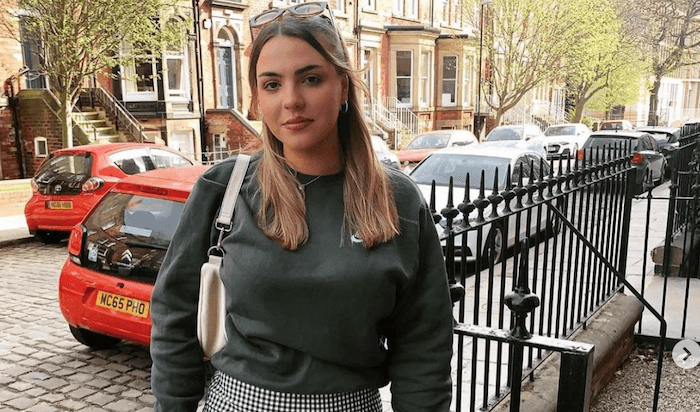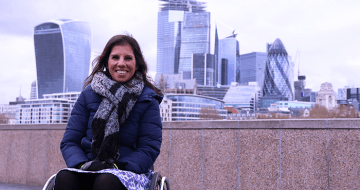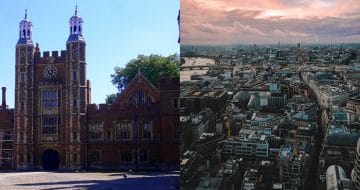Amelia Platton highlights the problems and possible solutions for the legal profession

Issues around gender and race are hot topics within law firms, but the same cannot yet be said about neurodiversity.
The term ‘neurodiversity’, coined by a sociologist in the late nineties, recognises the strengths that emerge from neurodevelopmental conditions such as dyslexia, dyspraxia, autism and ADHD, and encourages a focus on brain differences, rather than deficits.
Recent findings by the Solicitors Regulation Authority (SRA) show that 96% of law firms have an equality, diversity and inclusion policy in place, but only 20% have an action plan to promote disability inclusion. What’s more, the SRA is aware that ‘disability status’ is under-reported across firms, with only 3% of lawyers declaring they had a disability in its most recently published diversity data, compared to 13% of the national workforce.
Amelia Platton, a first class law graduate from the University of Leeds, is campaigning to raise awareness of neurodiversity in law. Platton, an aspiring solicitor, has dyspraxia and has set up an Instagram blog, podcast and website, ‘The Neurodiverse Lawyer’ charting the hurdles she’s faced on her journey to securing a training contract. Here we chat to her to find out more about her new project.
What are you hoping to achieve by running your blog, podcast, and website?
Fundamentally, change the attitudes towards neurodivergent people in the legal sector. There is a lot of misconceptions that exist, many of us are subject to discrimination on a frequent basis, and there is not many of us in the sector. I have had too many bad experiences in legal work/recruitment, and I don’t want anyone else to go through this. I also just wanted to start a platform for neurodivergent people to share their views, struggles, and have their voices heard, so I hope this will continue.
You achieved a 1st class in law, which is very commendable. How did you balance the high demands of a law degree with your neuro-disability? What advice do you have for students in a similar position?
At first, I struggled both academically and personally, and I slipped behind. What I realised is that you should avoid comparing yourself to others because everyone follows their own path. Conquering your own impostor syndrome, as well as convincing yourself that you are worthy of being here and that you are not weak for admitting you require assistance. Once I realised this, I began asking for help, doing my degree in a way that worked for me, and, most importantly, taking care of my mental health.
What are your future career ambitions? Is the aim to secure a training contract?
One of my key goals is to make the TC recruiting process more accessible. As of now, the ones I’ve done haven’t been. So, if I can get through this, I’m trying to get a TC at a multinational commercial firm with a focus on legal technology. Many people have advised me to think smaller, but I refuse to allow my neurodivergence to limit me in any way, and I have a lot of strengths to contribute.
Do you disclose your condition on your applications for training contracts?
I never used to, but now I always do, and I make it abundantly clear what my disability is and what adjustments I’ll require. I understand why people don’t; many firms give lip service to disability diversity, and when you see 1-3% of their employees is disabled, you’re bound to be concerned about disclosing. It’s also a very personal choice. However, I realised that I didn’t want to hide my condition simply because I might encounter discrimination and be an ‘inconvenience’. Neuro-disabilities are real, and we have so much to give the workforce. The key problem, in my opinion, is that companies do not take my disability seriously, and do not appropriately accommodate my needs.
What do you think are the challenges neurodivergent people face in the legal sector? What more can be done to overcome this?
This is something I could write a book about! The main culprits, in my opinion, are a lack of neurodivergent representation in firms, prejudice in the hiring process (particularly reasonable adjustments that are not executed appropriately!), and an enhanced awareness in firms to combat discrimination. Some solutions are simple, such as having a disability specialist in firms, education, training, and actively engaging with neurodivergent people, while others are more complex, such as a societal shift in attitudes, addressing unconscious bias, and establishing initiatives to help neurodivergent people enter the profession.
How does the profession benefit by bringing in neurodiverse lawyers?
In an ideal world, we’d be hired because it’s the right thing to do; almost everyone knows a neurodivergent person, and most people don’t want to see them struggle. However, we bring a lot to the workplace, thus hiring a neurodivergent individual is not doing us a ‘favour’! We have faced numerous hardships, thus we are generally incredibly resilient, hardworking, committed, innovative, and exceptional problem solvers who continue to hunt for solutions when most people would have given up. Being a great lawyer requires this level of critical thought and devotion. Dyspraxia, for example, often makes you highly sympathetic (excellent for leadership and understanding clients), a good holistic thinker, and very passionate about our profession. There is evidence that this boosts team morale, not to mention the reputational advantages organisations might get by signalling to commercial clients that they embrace neuro-minorities.
What’s next for ‘The Neurodiverse Lawyer’?
There are many amazing things in the works! Several recruitment managers from magic, silver, and ‘Top 200’ firms have volunteered to appear on the podcast to discuss what they have in place for neurodivergent employees/applicants. I’ve also recently begun accepting volunteers on my website, so that we can reach out to more fantastic organisations like Legal Cheek and spread awareness. I’m hoping that it will eventually grow into a small network of people who can offer advice, thoughts, and discussions while also campaigning for change.



